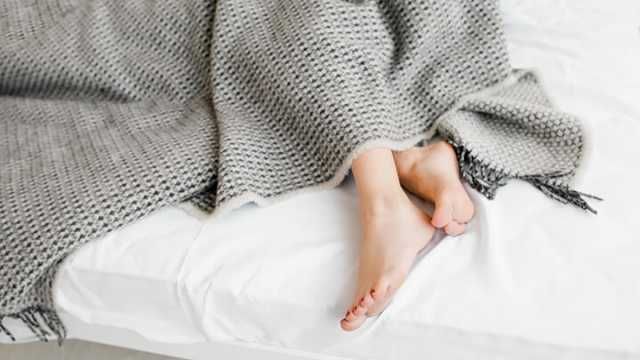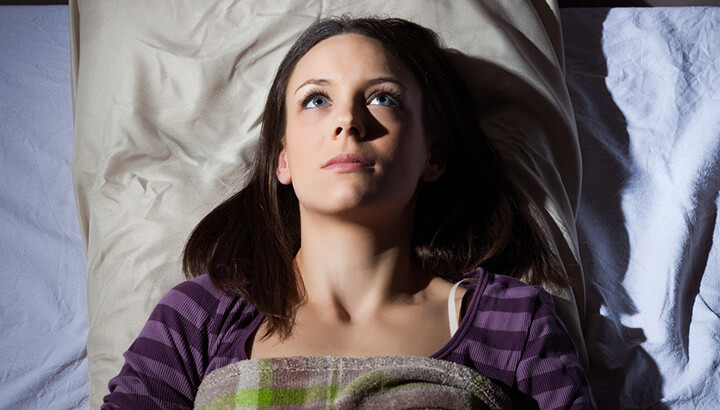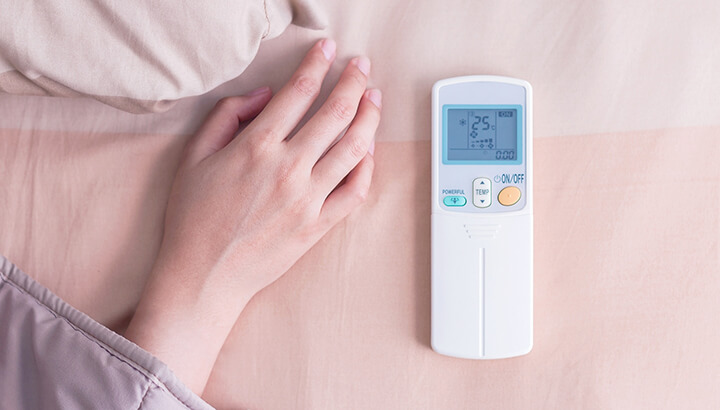
When I think of toes and sleep, all I can focus on is the fact that they need to be covered by my blanket. I can’t sleep otherwise — or could I?
Perhaps it’s all built up in my head. After years of covering my “little piggies,” I think that it’s become a habit that’s comforting. But am I sabotaging a good night’s rest? Are you quick to hide your feet under the covers as well? If so, you may want to support their midnight escape.
The connection between temperature and sleep
Being an avid outdoorswoman, I have been on a lot of camping trips. For some, I’ve had to hike several miles and canoe several more just to reach my site. If there’s one thing that I learned growing up, when you’re camping, you always bring extra socks and a warm hat.
Why, you ask? Well, these are said to be two areas where your body rapidly loses heat. Scientists have since debunked the idea that you lose the most body heat through your head. But they have also verified that even a small amount lost through your face, hands or feet affects your core temperature. Meaning, our feet and toes can help us regulate the temperature of our internal body.
For those who struggle to fall asleep, and stay asleep for that matter, they’re often given tips about their environment — more specifically, room temperature. This is based on how your body changes temperature as you sleep and its effect on sleep quality.
Our bodies are highly efficient when it comes to internal temperature regulation, based on thermoregulation. This process helps us achieve homeostasis — or internal balance. When aiming to maintain an optimal internal temperature, our heart plays a major role, but so do our feet.
Article: If You’re Cold All the Time, It Might Be Caused By One of These…
If you’re too warm, you can’t sleep properly

Since your feet (and hands) are at your body’s extremities, they can release excessive heat. With the large surface area of feet, specialized blood vessels and lack of hair, they essentially alter the amount of blood flow. If you are too hot, these specialized blood vessels open up, allowing your feet to release heat, cooling down your body. Similarly, when your body temperature is normal, these blood vessels close.
Basically, if our body’s remain too warm, our brain does not effectively make the “switch” from being awake to being asleep. This results in crummy sleep and morning-after side effects. For those who do not achieve a good night’s rest as often as you’d like, you can relate to the range of mood-altering, cognitive effects you experience the next day. No, thank you!
Stick your toes outside of the blanket
Have you ever woken up and one leg has escaped the blanket? Were you tossing and turning, or were your trapped feet trying to escape the covers?
Of course, your feet do not have a “mind of their own.” But maybe they helped your brain out, ensuring that your body maintained an optimal temperature. As discussed, this connection comes down to the critical connection between temperature and sleep — more specifically, cool temperatures and optimal sleep.
As we fall into a deep slumber, our bodies often produce a fair amount of heat. Add your pajamas and comforter into the mix, and your body quickly becomes a little too hot for its own liking. Unconsciously, your feet then sneak outside the covers, allowing for heat to escape, increasing relaxation. Makes sense, right?
This is especially true when your room is warmer, particularly during the summer months. Based on a 24-hour period, during your normal circadian rhythm, sleep occurs when your core temperature drops by two to three degrees. This is why sleep experts often recommend a warm bath before bed, resulting in a slight temperature drop as you get out of the tub.
Optimal temperature is important for normal sleep
What’s really interesting is how modern sleep environments may affect sleep quality. In comparison to groups living in more natural environments, we do not experience the same daily cycle of temperature change. This was examined in a ground-breaking study, showcasing the importance of optimal temperatures for normal sleep.
This study, published in Current Biology, found that all humans appear to express core human sleep patterns. While studying groups of people from the Hadza of Tanzania, the San of Namibia, and the Tsimane of Bolivia, researchers found that although we share similar sleeping patterns, insomnia was rare among these groups.
In comparison, approximately 20 percent of Americans suffer from insomnia, so what’s going on here? Some believe that stress is what keeps so many of us up, which isn’t a far stretch. But researchers also believe that sleep temperature plays a vital role. More importantly, falling environmental temperature is integral to sleep.
Our modern lifestyles allow us to set the thermostat, maintaining a constant temperature. Even if that temperature is set below normal daytime levels, as recommended, a declining ambient temperature may be needed to achieve more consistent sleep-wake cycles. As the researchers stated, we may be disrupting ancient patterns, in relation to both light and temperature.
It’s not just our bodies that need to stay cool

In order to achieve restorative sleep, our core temperature needs to be optimally controlled. And our brains also need to remain fairly cool. Those who suffer from insomnia, for instance, often experience increased metabolism in the brain’s frontal cortex.
Within one study, as reported by the American Academy of Sleep Medicine, researchers found that a cooling cap helped those with insomnia. This study focused on the benefits of a process known as “cerebral hypothermia” and its effect on sleep quality. Researchers found that when wearing a cooling cap, subjects with insomnia slept nearly as well as healthy individuals without insomnia.
If you do struggle to fall asleep, you can source cooling pillow mats that help some individuals fall asleep. You can also try valerian root. It’s a popular alternative sleep remedy. If you lay awake worrying, start to practice effective stress management techniques during the day, including meditation.
The takeaway: Please do not underestimate the importance of quality sleep. From memory consolidation to tissue repair, this period is critical for our health. If you often awake in a sweat, start sleeping with your feet outside the covers — see if it helps! Remember, optimal sleep equals optimal health. After all, as the great Dalai Lama once said, “Sleep is the best meditation.”
— Krista Hillis

